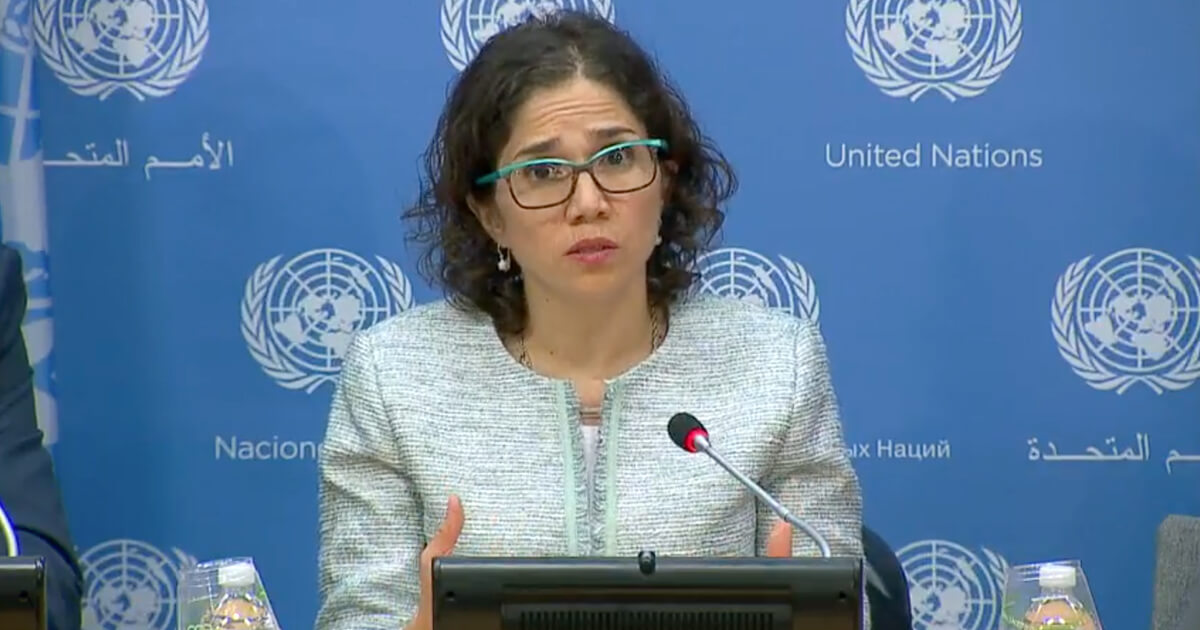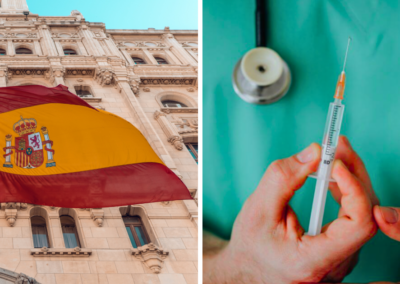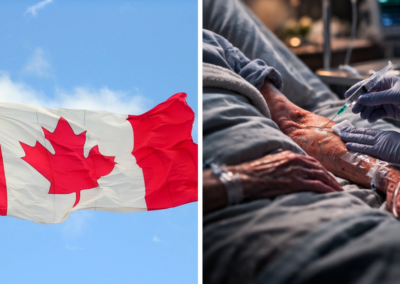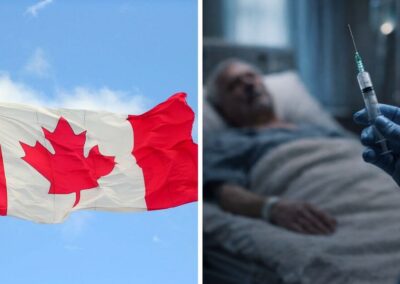A United Nations human rights expert has brought fresh attention to some of the many negative consequences of disability-selective abortion and assisted suicide in a wide-ranging report on disability rights to the Human Rights Council on people with disabilities.
Special rapporteur Catalina Devandas-Aguilar is a Costa Rican lawyer who has spina bifida and has three children with the condition.
Unfortunately, Catalina Devandas Aguilar’s report has been overlooked because of the current focus on the coronavirus pandemic.
Beginning of life: Prenatal screening
In the report, Catalina shares how technological advances in prenatal screening has resulted in a steady rise of prospective parents choosing to abort children like her own.
She revealed how “in some high-income countries, high uptake rates for screening have already been associated with significant reductions in the number of children born with some congenital disabilities.”
Evidence of this can be seen across the UK, which recently reported a 150% rise in disability-selective abortions relating to cleft lip. Additionally, figures show 90% of babies with Down’s syndrome are aborted and estimates show the figure is around 80% for babies with spina bifida.
Catalina, who herself has spina bifida, suggests the use of prenatal screening is a cost-saving measure – as it is often cheaper to abort a baby than offer life-affirming treatment. She says: “Genetic screening must never be considered to be a cost-effective alternative to providing the highest attainable standard of care or service for persons with disabilities.”
In 2013, it was revealed a staggering £30 million had been spent in the UK on prenatally screening babies for Down’s syndrome. In comparison, less than £2 million was spent on research that would improve the lives of those who survive the eugenic screening process.
Catalina rightly points out that such practices “may reinforce and socially validate the message that persons with disabilities ought not to have been born,” a concern shared by disability rights activists.
“Legislative frameworks that extend the time frame for a lawful abortion or,
exceptionally, permit abortion in the presence of fetal impairment aggravate this message,” she adds.
“In addition, as the consequence is a smaller number of persons with disabilities being born, some fear a reduction in disability advocacy and social support for persons with disabilities.”
End of life: Assisted suicide
Catalina is even stronger on the issue of assisted suicide saying “an impairment should never be a reason for assisted dying to be permitted.”
The Costa Rican lawyer, highlights how legalising assisted suicide will place at risk the lives of persons with disabilities.
“If assisted dying is made available for all persons with a health condition or impairment, regardless of whether they are terminally ill or not, a social assumption might follow that it is better to be dead than to live with a disability,” she says.
“Generally, when life-ending interventions are normalized outside the end stage of terminal illness, persons with disabilities and older people may increasingly feel the need to end their lives.”
The report states how those with disabilities are vulnerable to explicit and implicit pressures to undergo an assisted suicide ‘procedure’, including expectations from family members, financial pressures, cultural messages and even coercion.
During life: ‘Futile treatment’?
In addition to highlighting the discrimination disabled people face at the beginning of life and at the end of life, Catalina reveals how disabled people are discriminated during their life.
“It has been reported that physicians may exert pressure on critically ill patients and their families to withhold or withdraw life-sustaining treatment based on the belief that further treatment would be futile, non-beneficial or potentially inappropriate, particularly for patients with severe impairments.
“That subjective assessment, based on the physician’s opinion and values, includes an assumption on the resulting quality of life of the individual and thus involves a risk that it is influenced by ableist views of living with a disability.”
She adds: “Similarly, cost-effectiveness considerations may also result in the denial of life-sustaining treatments to some persons with disabilities.”
Catalina concludes her report by suggesting countries who are member states of the UN should: “Conduct a comprehensive legislative and policy review to abolish all laws, regulations, customs and practices that discriminate against persons with disabilities, including in the context of medical or scientific procedures, research and experimentation.”
Before the publication of Catalina’s report, a campaign was launched in the UK to stop abortion being available up to birth for disabilities such as cleft lip, club foot and Down’s syndrome.
Heidi Crowter, a 24-year-old woman who has Down’s syndrome, has launched a landmark case against the UK Government over the current discriminatory abortion law that singles out babies with disabilities allowing abortion right through to birth.
Cheryl Bilsborrow, whose two-year-old son Hector has Down’s syndrome, has also joined Heidi in bringing forward the case.
The UN Committee on the Rights of Persons with Disabilities’ concluding observations on the initial report of the United Kingdom of Great Britain and Northern Ireland made a key recommendation that the UK change its abortion law on disability so that it does not single out babies with disabilities. However, the Government has decided to ignore this recommendation.
Additionally, a 2013 Parliamentary Inquiry into Abortion for Disability found the vast majority of those who gave evidence believed allowing abortion up to birth on the grounds of disability is discriminatory, contrary to the spirit of the Equality Act 2010 and that it affects wider public attitudes towards discrimination.
The Inquiry recommended Parliament reviews the question of allowing abortion on the grounds of disability and should consider repealing section 1(1)(d) of the Abortion Act which allows for it.
Disabled peer Lord Shinkwin has previously had a Bill in the House of Lords that would have repealed section 1(1)(d) of the Abortion Act – the Bill was undefeated but unfortunately ran out of time. Lord Shinkwin’s Bill was supported by Disability Rights UK.












